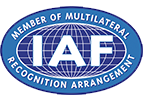Appeal & Complaint
1. Purpose
To describe in detail the procedure for handling appeals and complaints in a systematic, fair, and non-discriminatory manner. This ensures that the concerns of appellants or complainants are addressed objectively, impartially, and within established timelines, fostering trust and accountability in TNV’s certification processes.
2. Scope
This policy applies to:
1. All appeals submitted by applicants, certified clients, or third parties regarding decisions made by TNV.
2. All complaints regarding TNV’s certification operations, personnel, auditors, and the certified clients it monitors.
3. It also includes administrative or service-based grievances related to TNV’s performance.3. Responsibility
The Chief Executive Officer (CEO) or Managing Director (MD) holds overall responsibility for:
1. Ensuring the effectiveness of the complaints and appeals system.
2. Maintaining transparency, fairness, and confidentiality.
3. Ensuring that records are securely maintained and periodically reviewed during internal and external audits.4. Appeals Procedure
4.1 Introduction
TNV recognizes the right of any applicant, certified company, or interested party to appeal against its decisions. Appeals can relate to certification status, audit findings, or procedural outcomes. The appeal is referred to an independent Appeals Panel for impartial resolution, and its decision is final. This process is transparent and publicly documented on the TNV website at www.tnvgroup.org.
4.2 Administration of Appeals
4.2.1 Submission of Appeal
1. Appeals must be submitted in writing within 14 calendar days of receiving the contested decision.
2. The appellant must clearly describe the grounds and include relevant supporting documentation.
3. TNV’s CEO acknowledges receipt of the appeal within 5 working days and communicates the next steps.4.2.2 Recordkeeping
1. Appeals are registered using Form TNV-F-018
2. All documentation is preserved in the Appeals Register and handled securely.
3. The process includes tracking all follow-up and corrective actions initiated.
4.2.3 Appeals Panel Constitution
1. The CEO informs the Board of Directors and the Impartiality Committee.
2. An Appeals Panel is formed, consisting of:
2.1 A Chairman
2.2 Two impartial technical experts selected from the Impartiality Committee3. Appellants may challenge any panel member on reasonable grounds.
4. Members must not have been previously involved in the matter.
This ensures unbiased judgment in the appeal's resolution.
4.2.4 Appeals Panel Meeting
1. The meeting is convened within 30 days of receiving the appeal.
2. A 7-day written notice is given to the appellant.
3. The current TNV decision remains active until a final decision is issued.4.2.5 Proceedings and Decision
1. The Appeals Panel hears both the appellant and TNV’s representatives in a confidential setting.
2. The final decision is made by majority vote.
3. Similar past cases are referred to for consistency.
4. The appellant is notified of the outcome within 7 days of the decision.4.2.6 Independence and Fairness
1. No personnel involved in the original decision shall participate in the appeal resolution.
2. Reviewers are trained to ensure impartial judgment based on factual evidence.4.2.7 Non-Discrimination
1. TNV ensures that submitting an appeal does not result in any retaliation.
2. The appellant receives a formal written closure notice once the process concludes.5. Complaints Procedure
5.1 Introduction
Any stakeholder, applicant, certified client, or public body may file a complaint related to TNV’s certification process, behavior of its personnel or auditors, or activities of certified clients. The complaints process is designed to promote responsiveness, confidentiality, and fairness, and is accessible on TNV’s website and shared during certificate issuance.
5.2 Administration of Complaints
5.2.1 Initial Handling
1.Complaints may be submitted via email, phone, website form, or written letter.
2.The CEO reviews every complaint and logs it into the Complaint Register.
3.The identity of the complainant is kept confidential to the extent possible.5.2.2 Complaints Related to Certified Clients
1. TNV appoints an independent auditor to assess the matter, ensuring no conflict of interest.
2. Complaints are formally acknowledged, and affected certified clients are notified within 14 days.
3. When applicable, audit teams may be consulted to clarify findings.
4. A structured root cause analysis and corrective action plan are mandated.
5. Complaints against TNV personnel, including the CEO, are handled directly by the Chairman of the Impartiality Committee.
6. Complaints should be resolved within a maximum of 45 days.5.3 Actions on Complaints
The CEO ensures:
1. Timely, verifiable resolution of each complaint.
2. The complainant is updated about investigation results within 6 weeks.
3. A formal closing note is documented in the Complaint Register.
4. All relevant corrections, corrective actions, and preventive measures are implemented.
5. The complaint and its resolution are reviewed during Management Review Meetings.
6. TNV guarantees the confidentiality of both the complainant and any third parties involved.
7. Regular monthly updates are sent if the complaint remains unresolved.
8. Final decisions are made and approved by uninvolved personnel.
9. A closure notice is issued, including confirmation of whether the complaint resolution is public.5.4 Escalation of Complaints
1. If unresolved to the complainant’s satisfaction, the complaint may be escalated to IAS – the Accreditation Board.
2. Complaints not addressed within stipulated timelines are brought to the attention of TNV’s Top Management.
3. In cases where deadlines are significantly missed, unresolved complaints will be reported to the Accreditation Board for oversight.
6. Contact Information
Email: info@tnvgroup.org / tnvindia@gmail.com
Phone: +91 98380 70227 Postal Address: B-1/19/69 Sector K, Aliganj, Lucknow, UP 226024, IndiaThis updated Appeal & Complaint Procedure aligns with TNV’s commitment to impartiality, legal compliance, client transparency, and continuous quality improvement. We view appeals and complaints not as disputes, but as opportunities to strengthen our systems and build trust.








